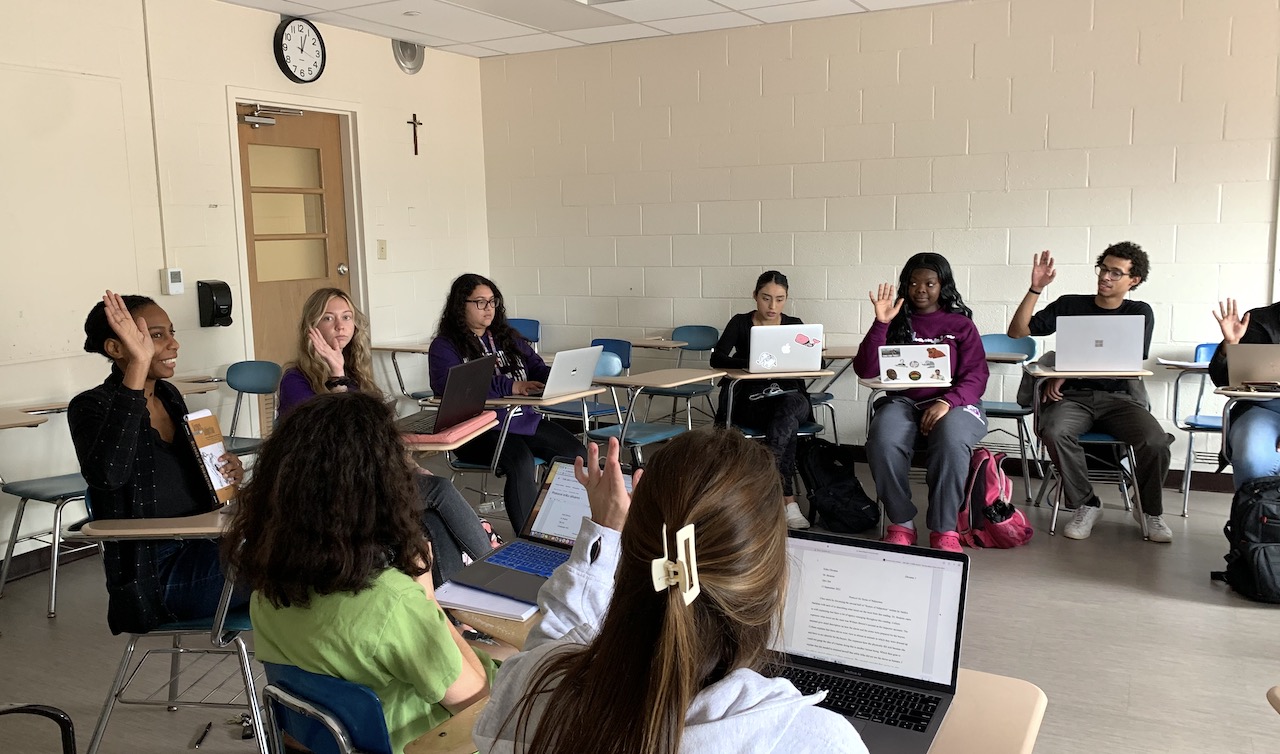Faculty Profiles: A Conversation with Nicole Hoskins, Ph.D.

By: Claire Sunday ’23, student correspondent
Nicole Hoskins, Ph.D., is an assistant professor in the theology department at the University of Scranton who became a full-time faculty member in the 2021-2022 academic year.
Dr. Nicole Hoskins brings classes on Black theology and African American Christian history to the theology department at The University of Scranton. In these classes, she helps her students to grow in their faiths. She also challenges their thinking so that they might come to “see themselves as active participants in their education.”
Dr. Hoskins’ courses focus on those who have been marginalized in our communities, and it is through this perspective that she incorporates the Jesuit mission into her classroom.
“Being people for others,” she said, “means something more when you realize how marginalized people have been othered. Caring for the whole person means something more when you realize that because of enslavement, Black people were considered non-human and later ¾ of a person.”
She does not shy away from the truths of our history’s racist past, but she also does not let our history place her students in despair. For example, she confronts with her students the Black enslavement by the Jesuits, but with hopes that “we let it inform us [on] how to build a more just path forward.” Students in her classroom are encouraged to contend verbally with new knowledge being presented to them and to grow in understanding with their peers. They are inspired to turn their feelings into a passion for justice so that they may help to create a fairer and more equitable world.
Dr. Hoskins seeks to continue her efforts for students at The University of Scranton by working with two new Black faculty members to create the school’s first Black Studies concentration. Together, they are aspiring for Black Studies to be offered one day as a major for Scranton students. Additionally, she hopes that the University will continue to take measures to improve the diversity on campus; she hopes that “the University continues to hire diverse faculty members and staff whose goal is to confront anti-Black racism and…that the University does more targeted outreach in the city of Scranton. The city of Scranton is more diverse than the University of Scranton. The good news is that we don’t have to look far to find more diverse students.”
Current research interests are leading Dr. Hoskins to think critically about discussions between Black studies and Native American studies. She believes these conversations can have an impact on how environmental ethics and eco-theology are considered: “We’ve been talking about the making of the category of the human and the making of the land as land in relation to Blackness and indigeneity.”
Currently, the professor is teaching a Black Spiritual Feminism class, as well as a Theology II class, and some students have elected to take multiple classes offered. This speaks to her impact on students, which may mirror the impact that someone once had on Dr. Hoskins: “It wasn’t advice…it was seeing. They said to me, ‘You are enough.’.” This is how she hopes students feel in her classes. More importantly, it is how she calls her students to view others.
MEET NICOLE HOSKINS, PH.D.:
Dr. Nicole Hoskins graduated from Spelman College with a bachelor’s degree in religious studies before graduating from Harvard Divinity School with her Masters of Divinity. At Drew University, Dr. Hoskins received her Ph.D. in religion and society. There, she was the recipient of the Charlotte W. Newcombe Fellowship, Louisville Institute Fellowship, and the Forum for Theological Education Fellowship.






